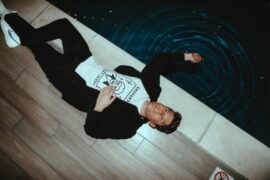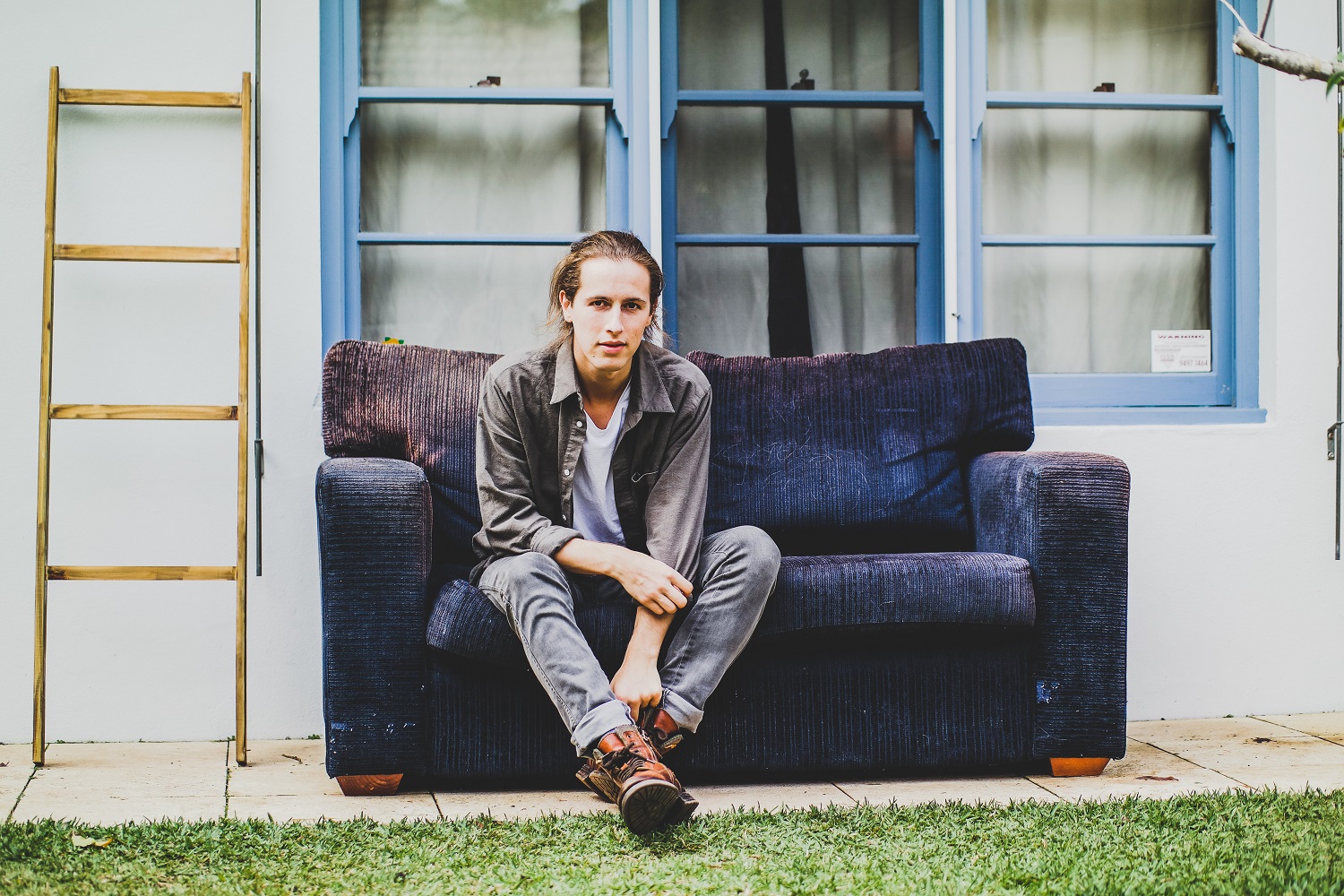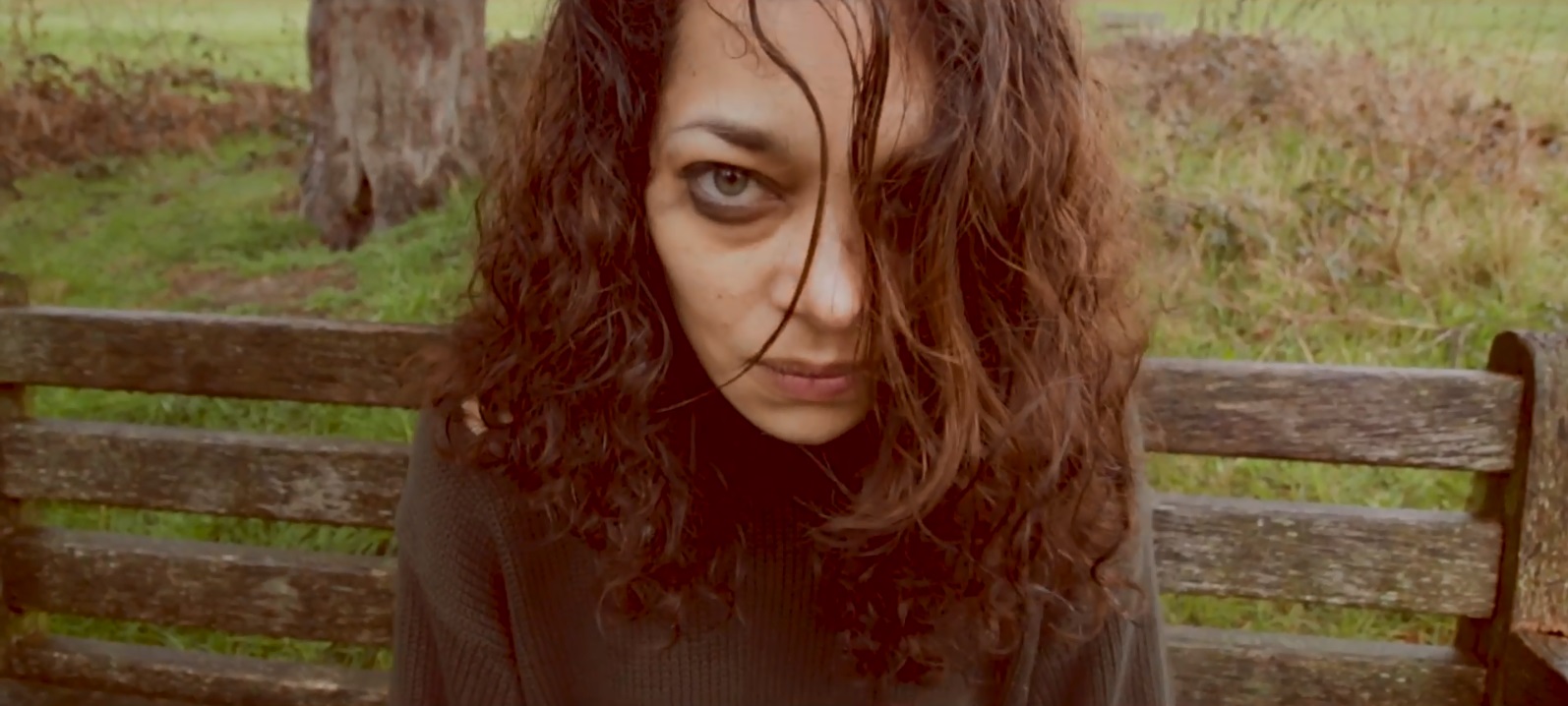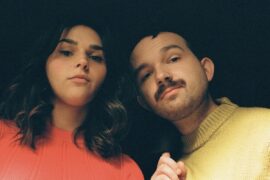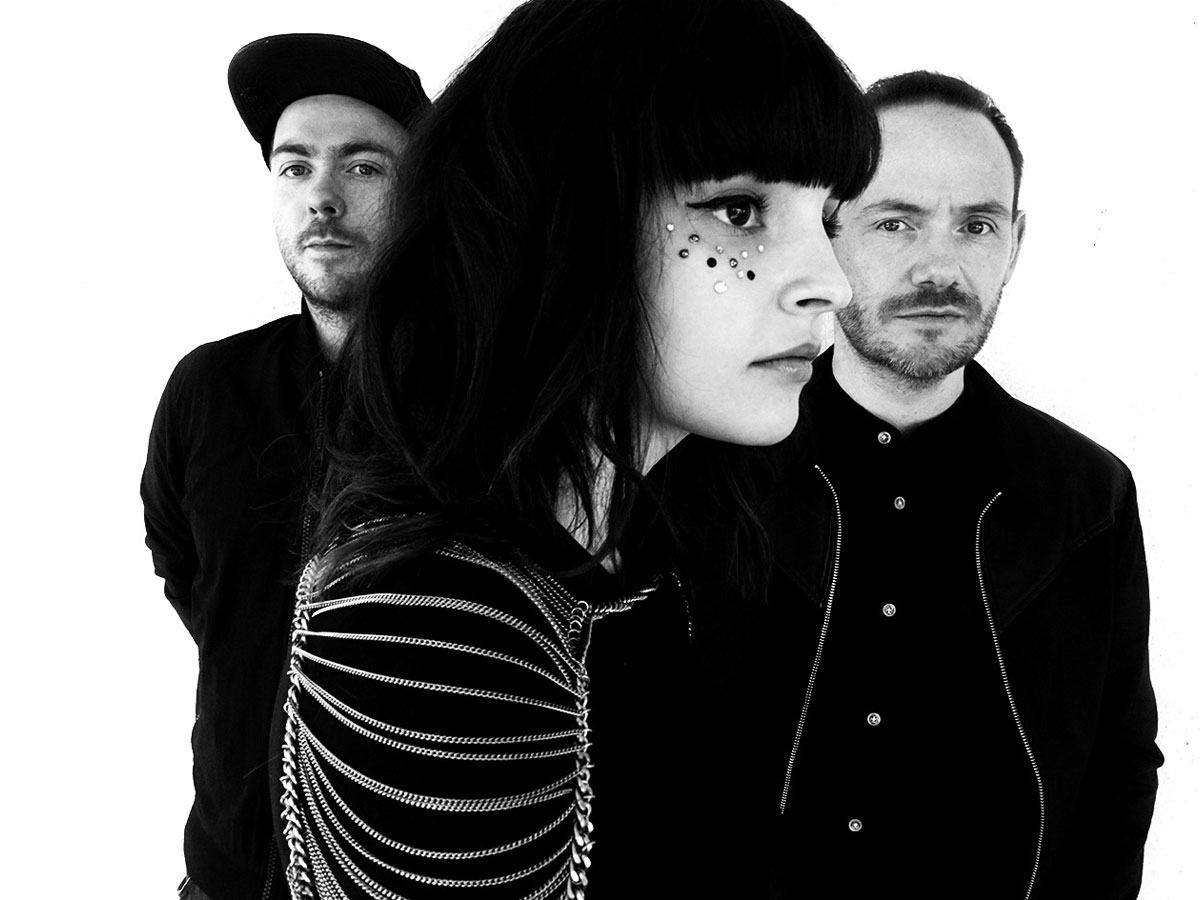Genre- and gender-bending rock band The Scarlet Opera deliver top-notch theatrics without overshadowing great songwriting, intricate arrangements, and one killer voice.
“Heaven Is a Place on Earth” – The Scarlet Opera
The Scarlet Opera bring the grit and grandeur of glam rock wrapped up in a live show that’s package that’s difficult to beat live.
The Los Angeles-based band started their journey as Perta before renaming in 2022, and their origin story has all the hallmarks of a classic rock tale: boy Colin Kenrick meets boy at a warehouse party, music is made, and a band is born.
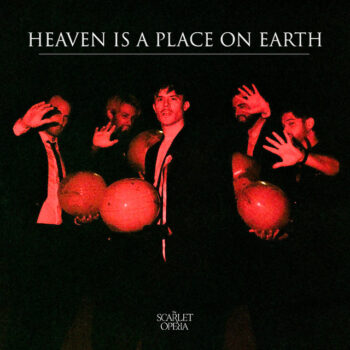
Charming frontman Luka Bazulka’s vocals are the sonic equivalent of velvet and steel, fitting for a group that’s been called a rock opera carnival, a blissful mashup of classic and indie rock, pop, funk, disco and electronica. Bazulka and Kenrick met at that fateful party in 2016, and Kenrick brought Justin Siegal on drums, Chance Taylor on guitar and Danny Zuker on bass to form the band.
Their recent cover of Belinda Carlisle’s “Heaven Is a Place on Earth” was produced by Carlisle’s original producer, and has seen their biggest streaming numbers yet.
Atwood Magazine sat down for a chat and a good laugh with all five of the Scarlet Operators (new fandom name)? Read our full interview with The Scarlet Opera below!
— —
:: stream/purchase Heaven Is a Place on Earth here ::
:: stream/purchase Mirror, Mirror here ::
:: connect with The Scarlet Opera here ::
— —
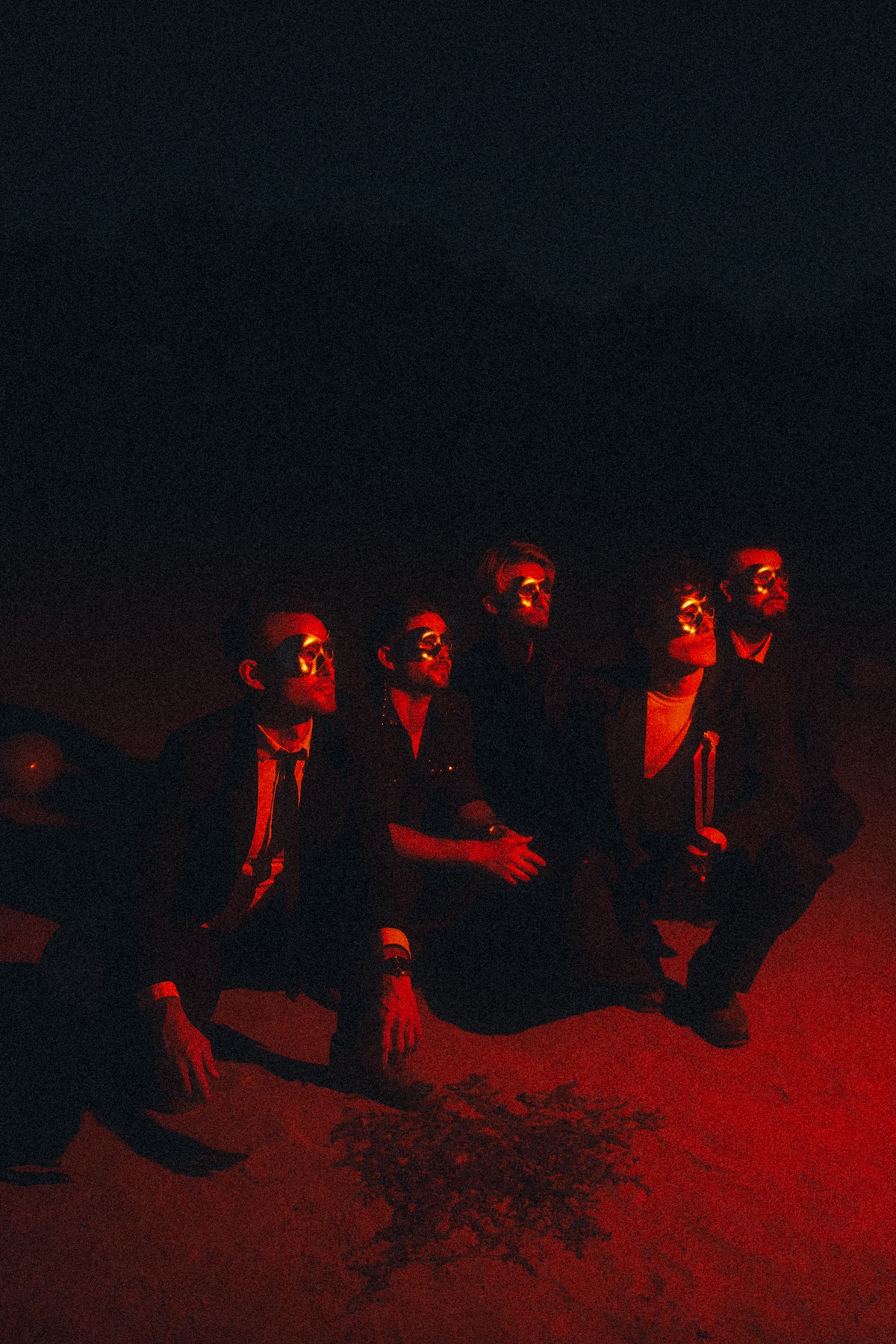
A CONVERSATION WITH THE SCARLET OPERA
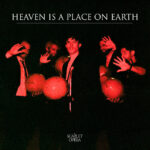
Atwood Magazine: “Heaven Is a Place on Earth” is out, it got more than a quarter million streams in its first four days, and is now above a half million. How is everybody feeling?
Luka Bazulka: Really great. It’s the first song that’s ever done those kinds of numbers, as our team has told us! On our first EP, we had one song, “Alive,” that was similar, but that too, like, an entire month. Yeah, so it’s just exciting. It’s been nice to see so many people connecting to a classic, but in a new way. When I was a kid I’d listen very melodramatically to it under my family dining room table and just imagine music videos upon music videos. So it was so strange to finally get to put out an official cover and have it be one of the songs that I would listen to as a kid.
What made you start doing it as a cover in the live show?
Colin Kenrick: I think we have a very specific but hard to quantify metric for what we do as covers. They usually end up being classic songs, but we need to find our own way to put a spin on them. So we usually spend a really long time, like two months, just trying things out and figuring out songs that might work. When someone suggested this song, in the first couple hours, we were like, Oh, this is it. I think we had the full arrangement, or maybe Chance did, like, the next day. It just kind of flowed.
What’s been the most exciting thing to come of it since you started performing it live?
Bazulka: The obvious answer is that Belinda [Carlisle] reached out. She loved the garage cover, but it wasn’t until, separately, the original producer, Rick Knowles, reached out and said, “Come on into my studio and let’s jam on it. And then it took less than a six hour studio day before we were all like, Yeah, let’s, like, put this out into the world. That was probably the most surreal.
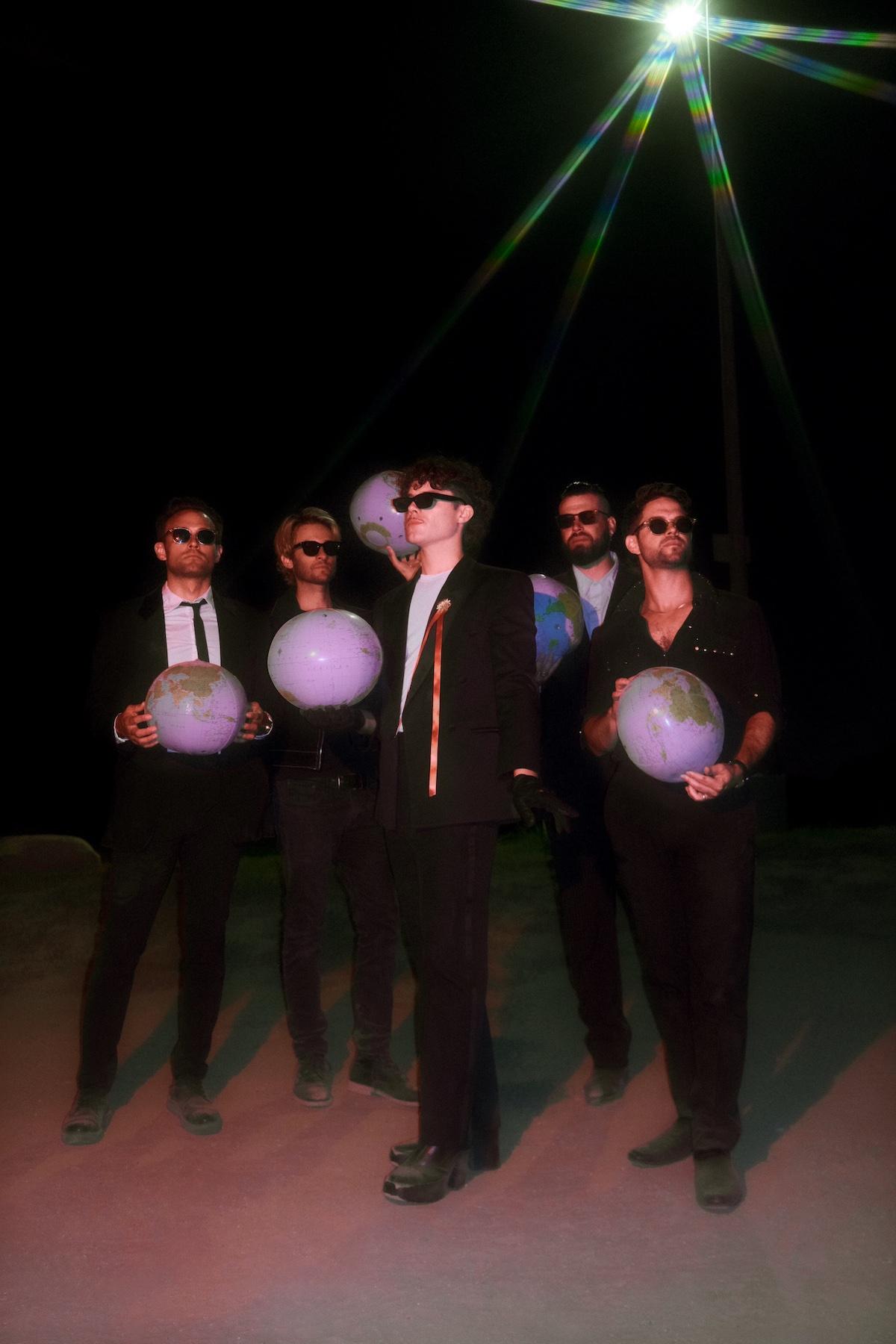
Your Mirror, Mirror EP has been out for a couple months now. How has the reception to that been?
Bazulka: So far so good! When we went on our last headline tour, we only had one of the songs out. But still, the reception of having a lot of our fans and fans who brought new friends to the shows, who knew the words, the choruses. Mostly because we are relentless online, absolutely whoring ourselves out–and fortunately for us, it works.
I’m excited to play a couple more shows now that it’s out. We have a couple one offs towards the end of this year. So I’m excited to see people’s reactions now that people have had a minute to sit with the whole EP and bite into it.
Kenrick: We had one show – that was the Minneapolis show, where the whole EP had been out at that point, and it was definitely a different energy when the fans like, oh, they know all the songs. They know all the words, we can engage them a little more, right? I agree with them. It’s really, it’s really kind of transformed our live show. Now it feels like a much fuller set.
Luka, you were talking about pouring yourself out online, with content creation being such a big deal these days. Does having a background in theater make the content creation side of things more fun or easier for you?
Bazulka: It has, it certainly has. Transparently, the boys and I have had a year of really figuring out the balance of becoming your own marketing team and actual joy and living in the moment, which is a very real struggle of most artists that are trying to have a life and a career. We never anticipated until around the pandemic years that we’d be pretty much our own entire marketing team. That being said, some of the best advice we got from our team a couple years ago was: bring the theatrics that you bring so naturally on stage onto the phone screen. So that’s what kind of flipped the switch for me and the boys, is like, well, how do we make it fun, right?
You've got some pretty dedicated fans who have been with you since the early days, since you were Perta.
Bazulka: Absolutely. Will still get requests for “From Fire,” our little single that could. That’s been really, really wonderful. And the past couple years, we’ve gotten to meet a lot of those people, and see them over and over again. It really does feel like a circus family, and watching people grow and as we’re maturing into who we are as artists. That’s really nice.
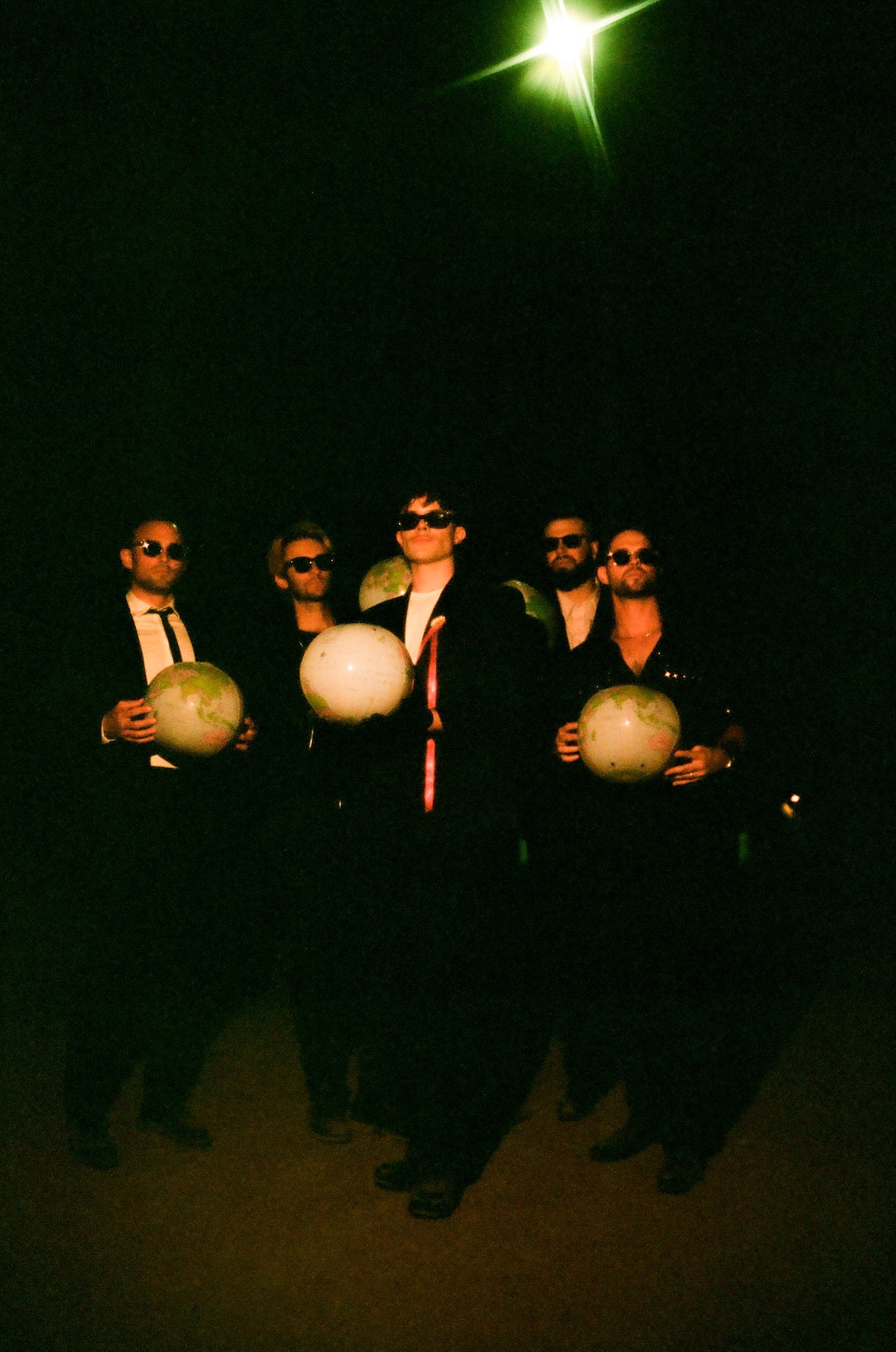
You've drawn lots of different comparisons to bands like Queen. How does that make you feel?
Justin Siegal: I think we’ve come around to appreciating it, because we like Queen, though we never really intended to set out with that sound in mind. It kind of just came about. We kind of just went into a studio for two weeks and came out The Scarlet Opera. We’ve done a lot of just experimenting with things and finding our natural sound. In the beginning we were like, oh, we’re nothing like Queen. Now, I think we own it. We appreciate it because we know it’s a compliment. There are lots of different artists whose sound we strive for, or who we’re influenced by, and that’s also changing all the time.
What modern artists are you listening to now?
Kenrick: I don’t think any of us would give the same answer, which is the funny thing! Luka’s answer would be diametrically opposed to Chance’s answer. Danny’s answer would be very different to Justin’s. The hope is that we would bring that together and say okay, how do we take a little bit of all these things and make some mishmash?
Bazulka: There are certainly modern artists that are exciting to us. We love Chappell Roan, obviously, for the theatrics. I’ve really loved Declan McKenna throughout the years. We do draw a lot of our inspiration from our live shows. But sonically, yeah, it is a little bit all over the place, because we all have vastly different tastes.
How does that come into play when you're writing? Where does your sound typically come from?
Bazulka: It’s most important that we get the top line and the song down first, so if we had to strip it down to just playing it on a guitar or piano, like, you know, we could. So as long as the song is good and we all really enjoy it, then we get back in the studio and we start picking it apart, laying down the foundation. It usually starts with a piano or a guitar and singing in the room. And then once the lyrics and the melodies are mostly fleshed out, then we start digging in.
How much do you – or do – you think about live show when you're writing, like, how it's going to translate onto the stage?
Bazulka: During the Mirror, Mirror era, we thought about it quite a bit, because we had just gotten hot off the Ava Max tour, and we were seeing how people reacted to certain moments, and that was so exciting. I think in this new EP we’re already working on, there’s moments where we go, Oh, that’ll be a fun show moment, but we’re more interested in writing music that just feels how it sounds.
Kenrick: We’ve learned as a live band, where our strengths are, and we know that we can make anything a great moment live, even things that might not feel in the studio as a moment. We will find ways to do it live. Luka is right that the real question is: can you write a great song so that, if you played it around a campfire on an acoustic guitar, you’d think it was a great song? On top of that, everything beyond that is bells and whistles and layers.
When you’re having a bad day, or are exhausted from tour, or sick, how can you still live up to the theatrics of your show?
Bazulka: To me, the music that we’re playing really matters. I get swept up in it. If I’m fortunate enough to do this with these boys for the rest of our lives, then I’d really like to set myself up to continue to get swept away on stage, because that’s my favorite thing in the whole world. So there’s a couple songs we probably won’t play again because it doesn’t really do it for me. And that’s the ultimate test we get on stage.
Kenrick: I remember one of the shows where you were feeling horrible, and you went out there, and because we’ve done it before so many times, you just locked in. And I was like, no one in that audience could tell one bit that you were sick like 10 seconds before you went on stage. So there is an element of discipline and practice for a live show.
Daniel Zuker: What Colin is saying is totally right: where you fall into a rhythm because you’ve practiced it so many times. The benefit of being in a band is you also know that wherever you are, whatever part of the country you’re in, or how big or how small the audience is, when you’re on the stage with your band, you are safe. So regardless of how sick or panicked or how much stage fright you have, or whatever the issue may be, you’ve got the support around you to know it’s going to be fine. And because everyone’s holding their weight, you feel–I don’t want to say less pressure, but you just fall into the rhythm and the practice of it.
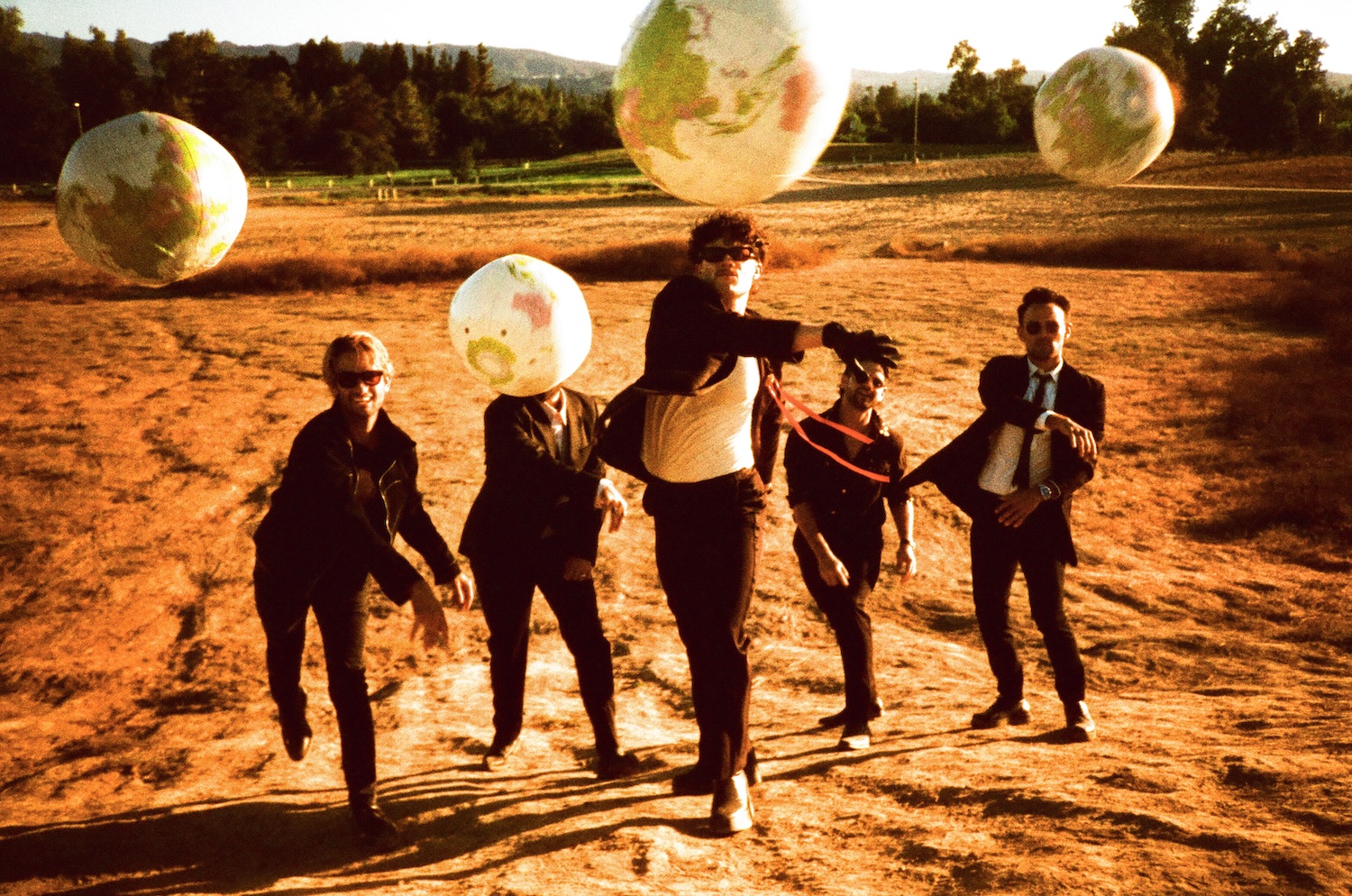
For everyone but Luka: If you had to sing one of your songs in Luka’s place, which one would you choose?
Bazulka: Oh, hell yeah. That’s a good one. I don’t think they know the words to any of them, actually.
Siegal: I think “Big City Thing” would be really fun, because it’s a little loose, and it might be the least daunting. Alive would be fun, but scary.
Kenrick: In a similar vein, I think “Slutty” is the same way – it’s our “Big City Thing” from Mirror, Mirror. That would probably be my choice.
Chance Taylor: My vote’s “Riot.” Hell yeah.
Zuker: I would fail at the pre-chorus of this song. But I’d pick “What Good Is Love?” I’d give it my darndest.
— —
:: stream/purchase Heaven Is a Place on Earth here ::
:: stream/purchase Mirror, Mirror here ::
:: connect with The Scarlet Opera here ::
— —
Stream: “Slutty” – The Scarlet Opera
— — — —

Connect to The Scarlet Opera on
Facebook, Twitter, TikTok, Instagram
Discover new music on Atwood Magazine
© Carianne Older
:: Stream The Scarlet Opera ::

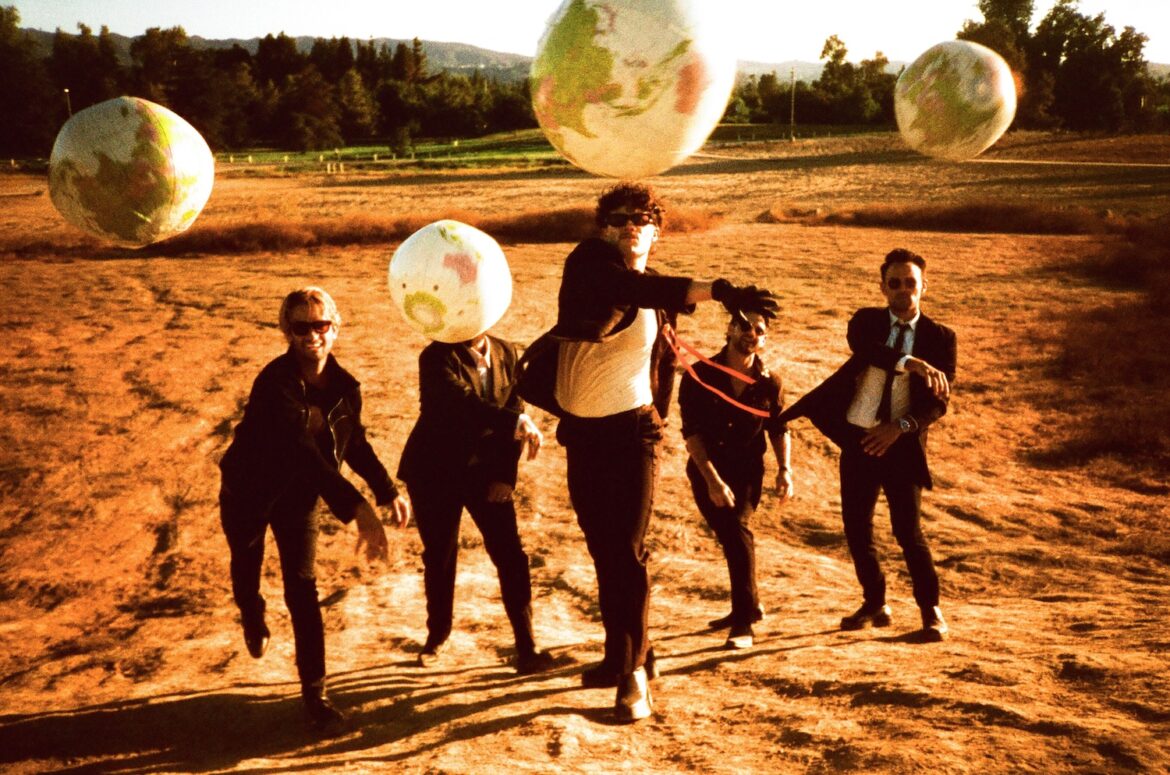
 © Carianne Older
© Carianne Older